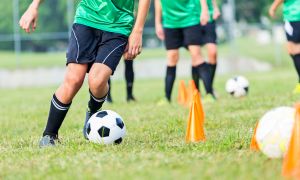Anger affects performance in several different ways.
1. Anger takes energy away from where you really need your energy to be. It takes energy away from the situation and environment but also your body, your muscles and your mind.
2. Not only does anger take energy away from where you need your energy to be but anger can have a lasting effect for an entire practice or competition and on you and others around you not during just that episode but as a lasting impression.
Continue Learning about Sports & Athletic Performance
Important: This content reflects information from various individuals and organizations and may offer alternative or opposing points of view. It should not be used for medical advice, diagnosis or treatment. As always, you should consult with your healthcare provider about your specific health needs.


